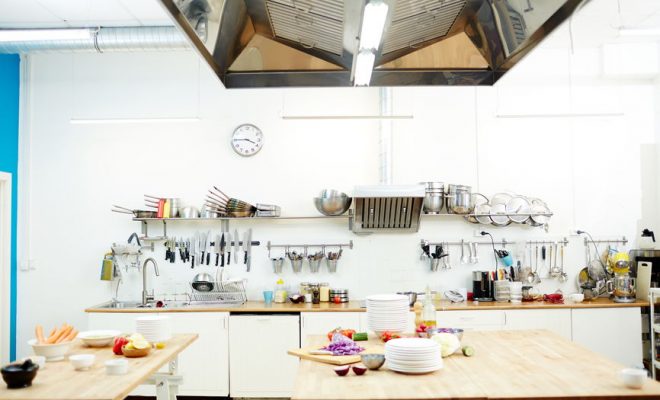 pixels
pixels
How to Clean Commercial Kitchens – 5 Easy Tips to Get Started
How to Clean Commercial Kitchens – 5 Easy Tips to Get Started
Cleanliness is an essential factor for all who have a hotel, corporate, or restaurant kitchen. In the past, approximately 50% of the foodborne diseases come from these food joints. Therefore, a clean kitchen will do away with these illnesses. Apart from frequent equipment maintenance, other spaces may need comprehensive cleaning on a specific periodic basis. This article highlights some commercial kitchen cleaning tips you can try. How to clean commercial kitchens – 5 easy tips to get started.
1. Cleaning Hard Surfaces and Countertops
In a kitchen, these hard surfaces host bacteria and facilitate their growth because they are used for meal preparation. Therefore, you should clean them frequently remove the storage bins for wiping with a disinfectant spray and a cloth. About 12 inches from the countertops, spraying should happen, and then give it time to dry before using it again. Soapy warm water and a soft brush can be used to remove beverage spills or dried food on the countertop. When cleaning the tiles, use some special disinfectants to remove grime and bacteria off the grout.
2. Cleaning the Appliances and other Commercial Equipment
The most effective way of maintaining equipment is a thorough cleaning. Always wipe the major appliances, but not forgetting microwaves, coffee makers, and toasters. Deep cleaning should be done after a while to ensure they remain in perfect condition always. You can make a scrubbing schedule for equipment like; fryers, ovens. Ranges, flattops, burners, cooktops, grills, and refrigeration units. Acquire the relevant cleaning resources including the lately advanced options in the market because they will enhance efficiency.
3. Clean the Exhaust Vents and Hoods
The exhaust features have a lot of grime and grease that restrict proper airflow in the kitchen space. Therefore, you must wash out these hoods at least every month especially if you have a deep fryer used daily. Scrub the filters using the guidelines found in the manufacturer’s manual, and so they last longer. You can as well reach out to commercial kitchen cleaning services in Brisbane because they can send agents to help you out. At times, you can spot some damages like tears and rips on the filters, and so the need to replace them instantly.
4. Scrub the Walls, Ceiling, and the Floors
Food particles and grease can stick on the walls, floor, and at times to the ceiling. The floor needs daily scrubbing, but the ceiling and the walls may take some time, maybe after two weeks. The floor should first be swept or using a vacuum cleaner to remove the dust or dirt. From there, warm water, vinegar, or any other cleaning solution like a degreaser should be used.
5. Cleaning Sinks and the Storage Sections
Sinks are the washing stations where dishes, utensils, and ingredients are cleaned. The station should therefore be spotless. A disinfectant spray should be used to remove the oil or grease that the commercial kitchen has. If the oil accumulates in the pipes, it can cause clogging. The storage racks should also be scoured after some time to remove dust, loose debris, or crumbs. You can also use warm water, vinegar, or any other cleaning solution.
Bottom Line
Maintaining a clean commercial kitchen should be a priority for all hotel and restaurant owners. The condition of the kitchen is conspicuously seen on the servings you make. Therefore, you should prepare a proper schedule if you want to keep the customers tightly loyal to your joint. Again frequent kitchen cleaning makes it and the appliances last longer.














